Among the disturbing trends this year is how restrictive abortion laws have affected; what is ectopic pregnancy control in the country. In some states, medical practitioners have legal doubts that could postpone the necessary medical help.
Thus to effectively tackle this health risk you need to have a clear understanding of what is ectopic pregnancy and recognize the early signs of ectopic pregnancy.
This article will discuss five early signs of ectopic pregnancy and go into detail about ectopic pregnancy causes as well as tips for dealing with ectopic pregnancy.
Recognizing these details may help you to identify potential problems sooner and seek appropriate healthcare treatment options like IVF after ectopic pregnancy.
What is Ectopic Pregnancy?
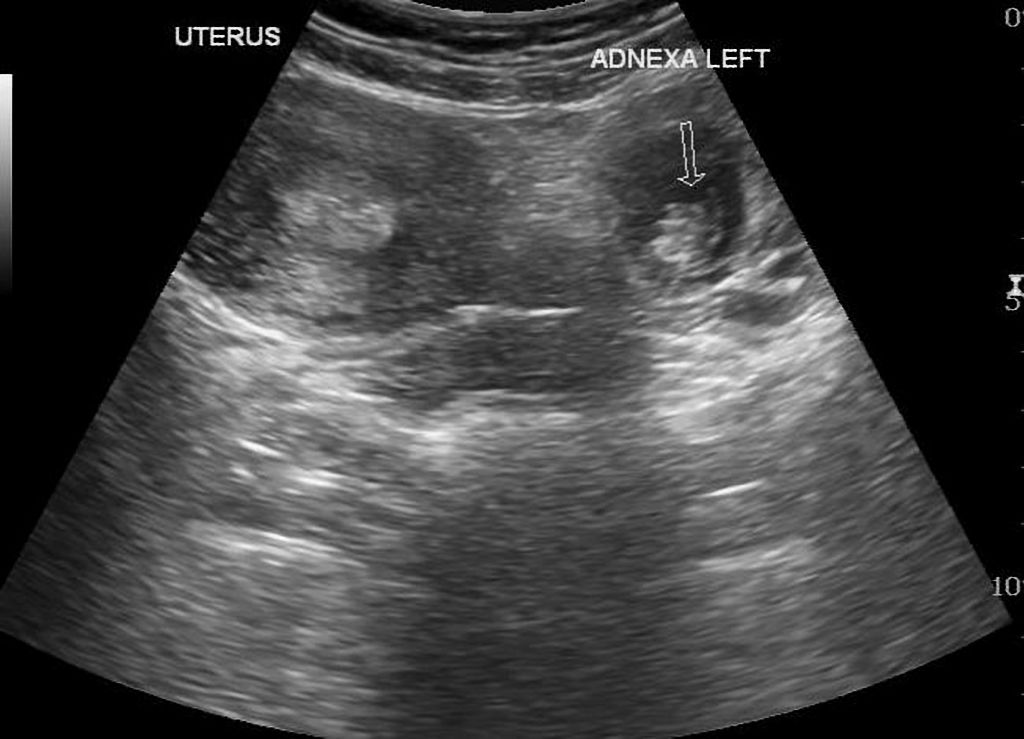
Ectopic pregnancy is a serious medical condition whereby an egg that is fertilized gets implanted outside the womb, such as in the fallopian tube. Therefore, it can be fatal if not treated quickly and may cause internal bleeding and harm to the sex organs.
Still, in 2024, ectopic pregnancies remain a major issue in the United States affecting 1-2% of all pregnancies.
The most common form of what is ectopic pregnancy occurs when a fertilized egg implants itself outside the uterus usually within the fallopian tube and if left untreated can lead to life-threatening complications.
Recent data indicates that there has been no change in cases of ectopic pregnancy which stand at approximately 100000 for every year reported annually in America.
Conversely, improvements in early diagnosis and treatment have kept its mortality rate at lower levels but still account for 3-10% of first-trimester deaths related to pregnancy.
One scary trend observed this year while dealing with ectopic pregnancy is how limited access to abortion influences how women with ectopic pregnancies get treated.
In some states, healthcare providers have claimed that legal uncertainties are causing delays for required medical treatments.
Read More: 9 Alarming Causes of Autism During Pregnancy Of New Mothers!
5 Early Signs of Ectopic Pregnancy
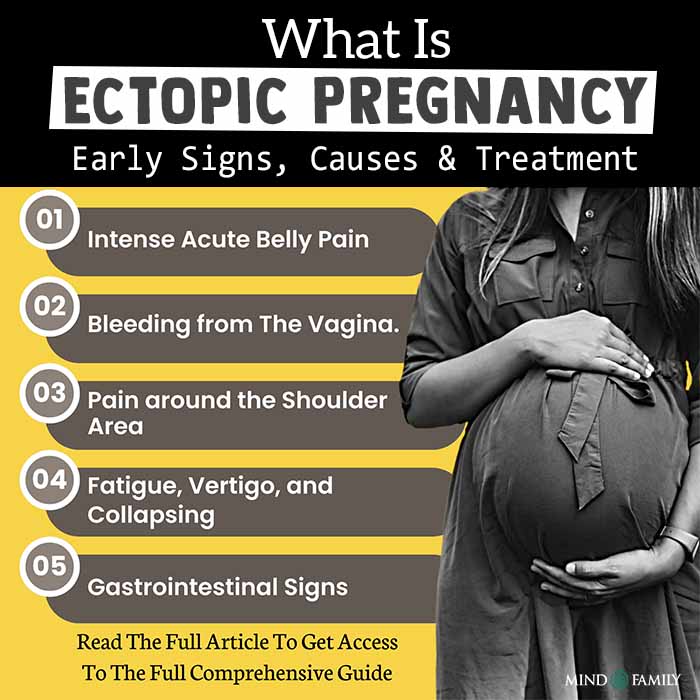
Here are five early signs of ectopic pregnancy that you should be aware of:
1. Intense Acute Belly Pain
One of the first indications of what is ectopic pregnancy is sharp, stabbing pains in the abdominal area which can be felt on one side in most cases. These pains may start suddenly and can be intermittent or continuous.
As the pregnancy advances, the pain usually becomes more severe often accompanied by feelings of dizziness or fainting as a result of internal bleeding, and this kind of pain should receive medical attention immediately.
2. Bleeding from The Vagina.
Unusual vaginal bleeding not associated with your normal menstrual period can show that you have an ectopic pregnancy. The blood flow might be lighter or heavier than usual and it is possible to have accompanying spotting too.
More often than not the blood may appear darker and thin watery. While some minor bleeding may occur during normal pregnancies, if you experience abnormal bleeding, please see your doctor to rule out ectopic pregnancy.
3. Pain around the Shoulder Area
Shoulder pain especially at its tip is an uncommon symptom but very significant for what is ectopic pregnancy. In many instances, such pain occurs due to internal hemorrhage irritating the diaphragm muscle located under the lungs.
When you have shoulder pain whose cause you do not know especially when accompanied by other symptoms like stomachache or lightheadedness could mean there is a chance of what is ectopic pregnancy.
4. Fatigue, Vertigo, and Collapsing
Weakness, dizziness, or fainting spells may occur if there is internal hemorrhaging caused by ectopic pregnancy; this happens because of reduced blood in circulation reaching vital body organs leading drop in blood pressure levels.
These early signs require immediate medical intervention; therefore go for emergency care whenever feeling uncharacteristically weak or dizzy coupled with other symptoms simultaneously occurring in another person’s body system.
5. Gastrointestinal Signs
Sometimes gastrointestinal disturbances such as vomiting, nausea, and diarrhea will come together with the symptoms of what is ectopic pregnancy.
Although these indicators can easily be mistaken for ordinary morning sickness of pregnancy or a stomach bug, if they are associated with any of the above symptoms, more attention needs to be paid.
In case you have these symptoms together with others that could point to an ectopic pregnancy, it is always best to err on the side of caution and consult your healthcare provider immediately.
Read More: How to Become Pregnant with PCOS: 7 Proven Strategies For A Promising Start
5 Ectopic Pregnancy Causes You Need To Be Aware Of
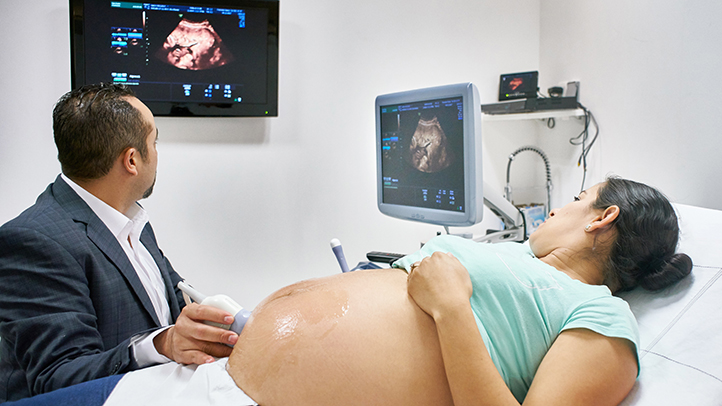
Here are five common ectopic pregnancy causes that you should be aware of:
1. Former Ectopic Pregnancy
One of the most common ectopic pregnancy causes is if you have had a previous ectopic pregnancy.
The probability of recurrence of what is ectopic pregnancy increases greatly because there may still be underlying problems that caused the first ectopic.
It’s very essential to be closely monitored through subsequent pregnancies if you had an ectopic pregnancy before.
2. Tubal Surgery or Damage
Any surgical procedures done on your fallopian tubes in the past, including those for infertility and reversal of tubal ligation, can raise the chances of occurrence.
This surgery may cause scar tissue or damage which can obstruct the journey of the egg to the uterus thereby allowing it to implant in the tube itself more easily. This often time leads to what is ectopic pregnancy.
3. Pelvic Inflammatory Disease (PID)
Fallopian tubes can be damaged by PID, often contracted via sexually transmitted infections such as chlamydia or gonorrhea.
Inflammation and scarring from PID can lead to blockages making it impossible for a fertilized egg to reach the uterus leading to ectopic implantation instead.
4. Use of Assisted Reproductive Technologies (ART)
Although ART like IVF helps many achieve conception, it also slightly raises their risk for ectopic pregnancy.
This is because sometimes embryos may get implanted outside of the uterus during these procedures especially if there is any underlying tubal damage.
5. Smoking
Smoking has been recognized as among the major ectopic pregnancy causes. The chemical substances found in cigarettes affect how fallopian tubes work and make it difficult for eggs to move toward the uterus.
It lowers this risk and improves general reproductive health by quitting smoking completely;
Keeping oneself updated with these causes will enable early identification or taking up preventive measures with your healthcare provider.
If your case falls under any of these risks, ensure that your physician knows about them as soon as possible particularly if you plan on conceiving or think you might be pregnant.
Read More: What Is The Best Age To Get Pregnant? 4 Crucial Insights!
5 Helpful Tips For Dealing With Ectopic Pregnancy
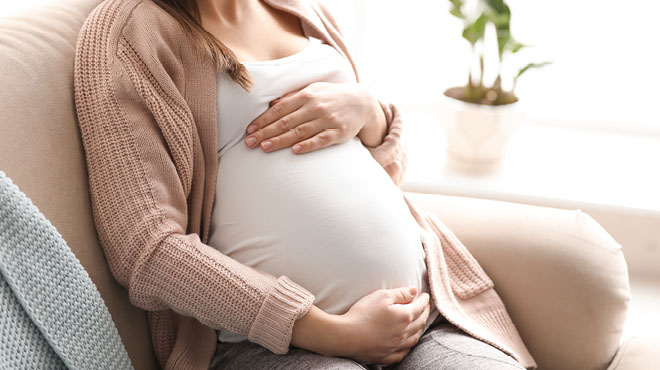
Here are five helpful tips for dealing with ectopic pregnancy:
1. Get Immediate Medical Assistance
Prompt treatment is necessary to prevent serious complications in ectopic pregnancy, which is an emergency medical condition.
When you have symptoms of ectopic pregnancy like severe abdominal pain, dizziness, or vaginal bleeding you should seek emergency medical care as soon as possible.
Early diagnosis can increase the effectiveness of treatment and minimize risks to your health. You can also opt for IVF after ectopic pregnancy.
2. IVF after Ectopic Pregnancy
Once diagnosed with what is ectopic pregnancy, your healthcare provider will discuss various forms of treatment including medication such as methotrexate or surgery depending on the nature of each occurrence.
It is important to know the benefits and potential side effects that come with dealing with ectopic pregnancy with medical treatments. Learn about the pros and cons of IVF after ectopic pregnancy as part of learning about your treatment options.
Methotrexate, for example, is less invasive but requires careful monitoring, while surgery might be necessary in more advanced cases. Knowing these options supports sound decision-making about one’s care.
3. Take Time to Heal Physically
You need time for your body to recover after treatment. Observe your doctor’s advice on rest and physical activity
Avoid doing strenuous activities and let yourself relax a little bit. Although it varies during different women’s physical healing processes physically but few weeks are usually taken for the recovery period
Be watchful of any new symptoms and report them immediately to your healthcare provider.
4. Seek Emotional Support
Remember that what is ectopic pregnancy can be very emotionally distressing. You may feel a range of emotions such as sadness, anger, and confusion
Do not hesitate to ask for help from friends, counselors, or support groups who can provide you with coping strategies during this grieving period.
There is nothing more therapeutic than sharing experiences with those who have gone through similar situations enabling you to work through all your feelings about this experience together with others.
5. Plan for Future Pregnancies Carefully
If you are thinking about having children in the future then talk about it with your healthcare provider first because they can help you identify what increases the chances of getting pregnant again so that you can take measures to avoid such risks.
In the subsequent pregnancies, you might need some extra monitoring to ensure that all goes well.
Read More: 10 Early Warning Signs of Infertility In Men You Should Pay Attention To!
A Word From Mind Family
At Mind Family, we understand that dealing with ectopic pregnancy can be a deeply distressing experience, both physically and emotionally.
We hope this guide on what is ectopic pregnancy has provided you with essential information on recognizing early signs, understanding the causes, and exploring treatment options like IVF after ectopic pregnancy.
Your health and well-being are paramount. If you suspect you might be experiencing an ectopic pregnancy, seeking prompt medical attention is crucial. Remember that early diagnosis and treatment can significantly impact your recovery and overall health.
If you have concerns about future pregnancies or need guidance, don’t hesitate to reach out to your healthcare provider for personalized advice and care.
Stay informed, stay healthy, and remember that support is always available.
Frequently Asked Questions (FAQs)
What is ectopic pregnancy?
An ectopic pregnancy is when a fertilized egg implants outside the uterus, usually in the fallopian tube, which can be life-threatening if not treated quickly.
What are the early signs of ectopic pregnancy?
Early signs of ectopic pregnancy include sharp abdominal pain, vaginal bleeding, shoulder pain, dizziness, and gastrointestinal symptoms like nausea.
What are the common ectopic pregnancy causes?
Common ectopic pregnancy causes include a history of ectopic pregnancy, tubal surgery, pelvic inflammatory disease, use of assisted reproductive technologies, and smoking.
What are some tips for dealing with ectopic pregnancy?
Seek immediate medical care, understand treatment options, allow time for physical healing, seek emotional support, and plan future pregnancies carefully with your healthcare provider.
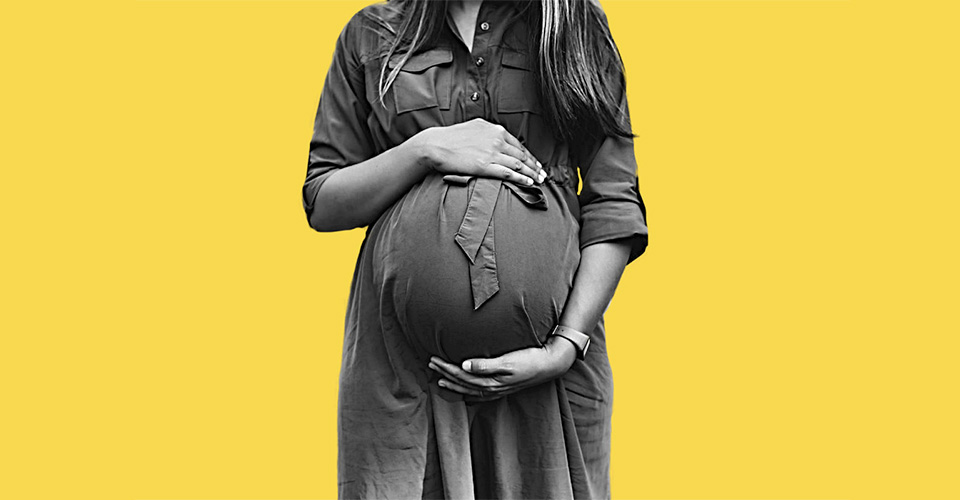











Leave a Reply